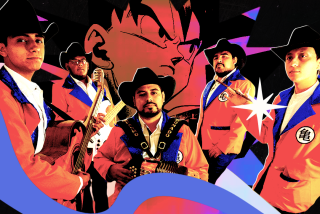Across Cultures, Computer Game Also Word Game
- Share via
All over the world, computer game fans share a passion for action. But game developers know that, when selling the same game in various countries, something as simple as slang can mean the difference between hit and miss.
Take the Final Fantasy series by Square Co. Ltd., a Tokyo-based game maker. The series of role-playing titles--now in its sixth sequel--has long been a huge hit in Japan, where some of its makers are treated as celebrities.
When the company decided to release the game in America, Square Co. turned to one of its subsidiaries in Orange County to translate the game from Japanese to English. But officials at Square Soft Inc. in Costa Mesa quickly realized that English speakers wouldn’t understand some of the story line’s pop culture references.
“You’d be surprised how important language is in our business,” said Randall Fujimoto, vice president of product development for Square Soft. The company recently released Final Fantasy VII for the PC.
“If you’re making references to old Japanese humor, kids in California aren’t going to get it,” he said.
To help “localize” the games, Square Soft recruits bilingual staff who are tapped into both Asian and American pop culture. That’s how Yukata Sano, 26, joined the company. Sano, 26, is bilingual and said he consumes “an extraordinary amount of television and movies and music” to pick up new slang and verbal trends.
Today, the company has a team of 10 people--five based in Costa Mesa, five in Tokyo--that makes sure that the game sounds “cool.”
“Young audiences know what’s real [slang] and what’s some adult’s idea of what’s cool,” Sano said. “If they can relate to how the characters are speaking, they can get drawn into the game even more.”
*
P.J. Huffstutter covers high technology for The Times. She can be reached at (714) 966-7830 and at p.j.huffstutter@latimes.com.






